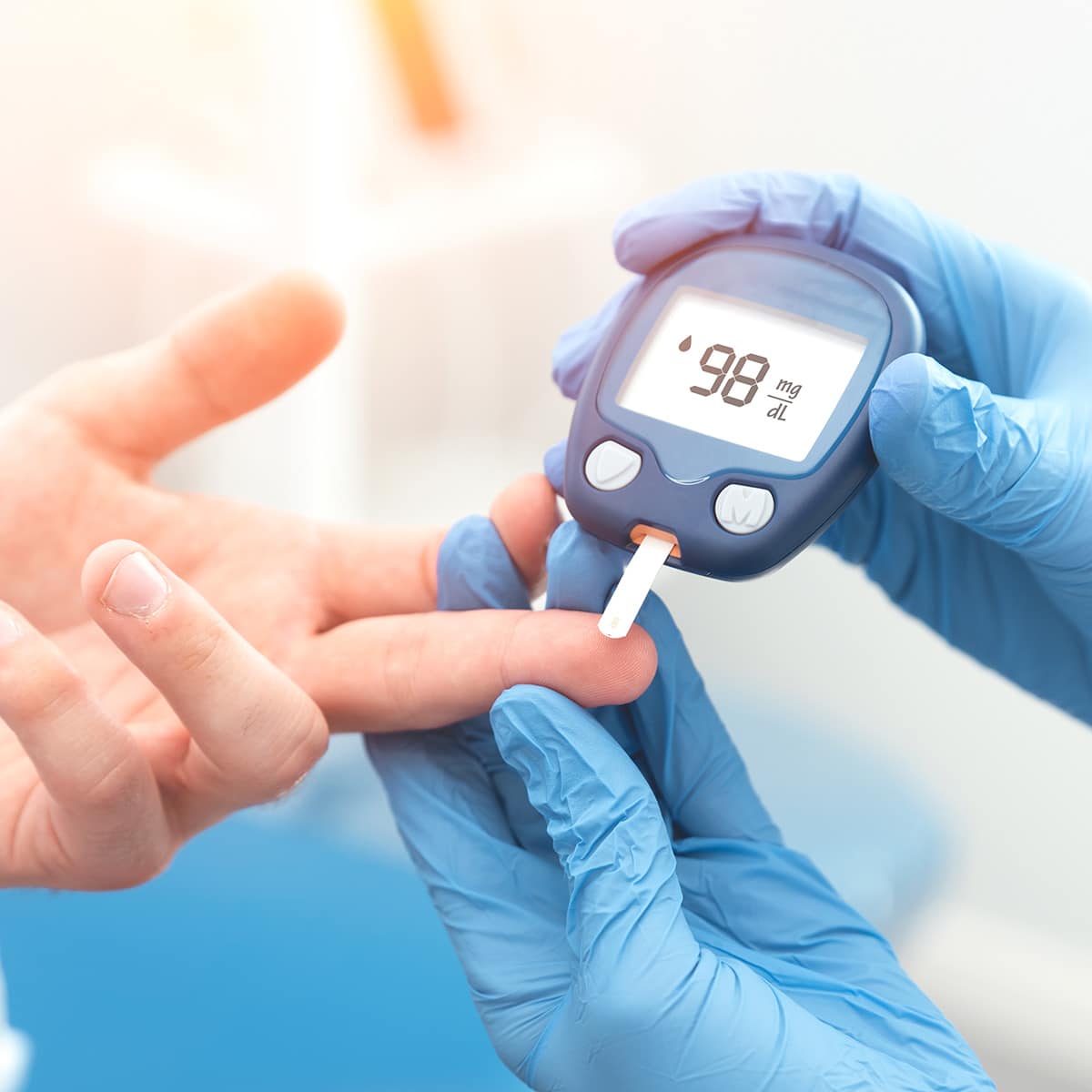Diabetes
Overview: The thyroid is a small, butterfly-shaped gland located in the front of the neck. It plays a crucial role in regulating metabolism and influencing various bodily functions. Disorders of the thyroid gland can lead to hormonal imbalances and impact overall health.
Daibetes: Understanding Types, Causes, and Management
Overview: Diabetes mellitus, commonly known as diabetes, is a chronic metabolic disorder characterized by elevated blood glucose levels. The condition arises due to insufficient insulin production or impaired utilization of insulin by the body's cells. Insulin is a hormone that regulates blood sugar and facilitates the entry of glucose into cells for energy production.
Types of Diabetes:
- Type 1 Diabetes:
- Overview: Autoimmune condition where the immune system attacks and destroys insulin-producing beta cells in the pancreas.
- Onset: Usually occurs in childhood or adolescence.
- Type 2 Diabetes:
- Overview: Results from insulin resistance, where cells fail to respond adequately to insulin, and a relative insulin deficiency.
- Onset: Typically develops in adulthood, but increasingly seen in younger individuals.
- Gestational Diabetes:
- Overview: Develops during pregnancy and may resolve after childbirth.
- Risk Factors: Obesity, family history of diabetes, and certain ethnic backgrounds.
- Treatment: Dietary changes, monitoring blood glucose levels, and sometimes medication.
Causes:
- Type 1 Diabetes:
- Genetic predisposition and environmental triggers that lead to an autoimmune response.
- Type 2 Diabetes:
- Genetic factors, obesity, sedentary lifestyle, and aging contribute to insulin resistance.
- Gestational Diabetes:
- Hormonal changes during pregnancy can affect insulin function.
Symptoms:
- Frequent Urination:
- Increased need to urinate.
- Excessive Thirst:
- Persistent thirst and dry mouth.
- Increased Hunger:
- Unexplained weight loss despite increased appetite.
- Fatigue:
- Feeling tired and weak.
- Blurred Vision:
- Changes in vision may occur.
- Slow Healing:
- Slow healing of cuts and wounds.
Diagnosis:
- Fasting Blood Sugar Test:
- Measures blood glucose levels after an overnight fast.
- Oral Glucose Tolerance Test (OGTT):
- Assesses blood sugar levels after consuming a glucose-rich drink.
- Hemoglobin A1c Test:
- Provides an average of blood sugar levels over the past few months.
Management:
- Lifestyle Modifications:
- Healthy diet, regular exercise, and weight management.
- Medications:
- Oral medications or injectable drugs to lower blood sugar levels.
- Insulin Therapy:
- Essential for Type 1 diabetes and may be required in advanced cases of Type 2 diabetes.
- Regular Monitoring:
- Monitoring blood glucose levels regularly.
- Disease Education:
- Understanding diabetes management, potential complications, and adopting a proactive approach.
Prevention:
- Healthy Lifestyle:
- Balanced diet, regular physical activity, and weight control.
- Regular Check-ups:
- Monitoring blood sugar levels, especially for individuals with a family history or risk factors.
- Gestational Diabetes:
- Early detection and management during pregnancy.
While diabetes is a chronic condition, proper management can significantly improve quality of life and reduce the risk of complications. Individuals with diabetes should work closely with healthcare professionals to develop a personalized treatment plan tailored to their specific needs. Regular monitoring, a healthy lifestyle, and adherence to prescribed treatments are key to effective diabetes management.

